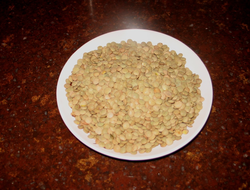Protein: a powerful macronutrient,
Published: March 18, 2021
When you hear or see the word "protein" what do you immediately think about?
A piece of meat, a weight loss diet, tonight's dinner, a "nutritious" shake, or your muscles in your body.
Dietary protein is a key nutrient for a healthy body and without enough protein from food you may experience protein deficiency and adverse health conditions.
The internet and other media are awash with advertisements for protein powders, whey protein, and protein shakes to help you lose weight, build muscle and supplement your diet.
High protein diets are touted as "the" way to achieve the weight loss and the body you desire. Protein is also promoted as an "energy" food.
Protein is broken down during your digestive process into amino acids and small peptides which are then absorbed into your body.
Unlike carbohydrate and fat you cannot store protein in your body and you require a regular source of dietary protein.
Amino acids are used for synthesising your body proteins which have many different functions in your body. Your body produces some amino acids, but several can only be obtained from the food you eat and are essential for proper body function.
Whether consuming too much protein will lead to adverse health effects has not yet been determined.
However, some foods containing protein, such as red meat and deli meats, have been associated with a higher risk of cancer, and there are concerns that too much protein in your diet may contribute to calcium loss from bones.
Why do you need protein?
It is estimated that there are 10,000 - 50,000 different proteins in your body of which 1000 have been studied. The many different proteins in your body have a variety of functions which are essential for proper body function.
Some proteins are involved in building (anabolic) mechanisms for growth and maintenance of your body.
Other proteins are involved in breaking down (catabolic) mechanisms such as digestion of food, and removal of old cellular material from your body.
Protein may also be broken down and used as...Link to the full article to learn more.
References
1.
Whitney, E. & Rady Rolfes, S. (2005). Understanding Nutrition. Belmont, CA: Thomson Wadsworth
2.
Gropper, S.S., Smith, J.L. & Groff, J.L. (2005). Advanced Nutrition and Human Metabolism (4thEd.). Belmont, CA: Thomson Wadsworth.
3.
Klug, W.S.& Cummings, M.R. (2002). Concepts of Genetics (6th Ed.) Upper Saddle River, NJ. Prentice Hall.

